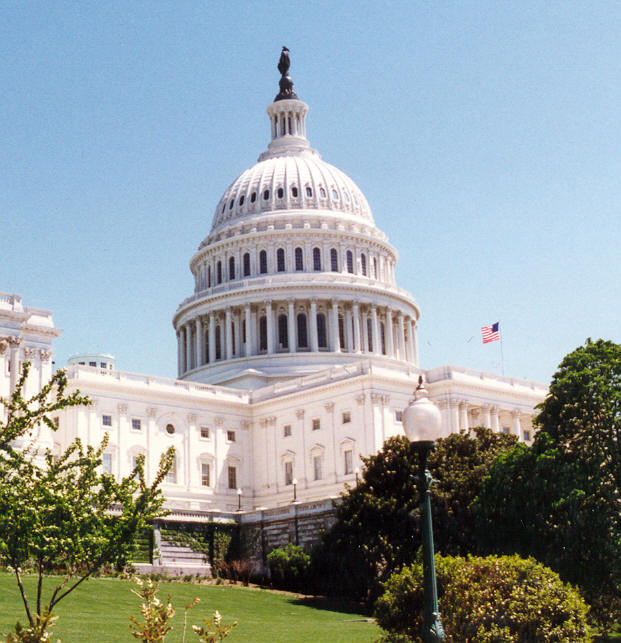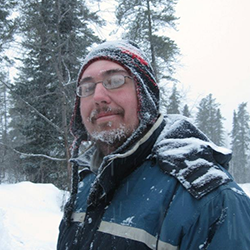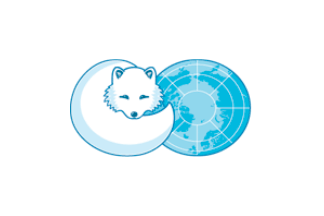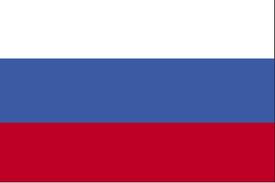|
|
|
|
|
|
|
|
Updated feature of the Arctic Update! Some servers may prevent subscribers from accessing HTML. We have added a feature to allow subscribbers to view the Update on the web instead of in their email. If you develop issues viewing this email, please click the "Click here: Having Trouble Viewing this Email?" link at the top of this email.
 Today's Congressional Action: Today's Congressional Action:
The House and Senate are in session and not expected to consider Arctic legislation.
|
 Arctic Kickstarter. Zac Hamilla, founder of the Arctic Studio (here) has initiated a Kickstarter project (here) titled, "The Arctic in U.S. National Identity." The project will result in a freely available research report on the nature and geography of U.S. Arctic identity and public consciousness. The Arctic Studio is a research organization focused on improving the quality of decision-making in political, economic, and security issues in the Arctic. Hamilla previously created the U.S. Navy's national Arctic intelligence analysis program and served as Principal Analyst for the Arctic at the U.S. Office of Naval Intelligence from 2009 to 2014." 95% funded...almost there. Arctic Kickstarter. Zac Hamilla, founder of the Arctic Studio (here) has initiated a Kickstarter project (here) titled, "The Arctic in U.S. National Identity." The project will result in a freely available research report on the nature and geography of U.S. Arctic identity and public consciousness. The Arctic Studio is a research organization focused on improving the quality of decision-making in political, economic, and security issues in the Arctic. Hamilla previously created the U.S. Navy's national Arctic intelligence analysis program and served as Principal Analyst for the Arctic at the U.S. Office of Naval Intelligence from 2009 to 2014." 95% funded...almost there.
[OPINION] Facts & Figures: Sarah Palin's Glacier Claims. Apropos of President Obama's visit to Alaska, Sarah Palin cited the fact that some glaciers are growing in size as evidence against human-caused climate change. "Obama was up here looking at, say, the glaciers and pointing out a glacier that was receding," she said on CNN over the weekend. "Well, there are other glaciers, though, that are growing up here." According to FactCheck.org, it's true that some glaciers are growing, but they're in the minority - of 126 glaciers included in the most recent analysis by the World Glacier Monitoring Service, 22 were growing, and 104 (or 83 percent) were shrinking. And there's a good explanation... New York Times
 Four of the Arctic Council's Six Working Groups to Meet in Tromso. In the week of 14-18 September, an unprecedented gathering of four of the Arctic Council's six Working Groups will be taking place in Troms°, Norway. Working Group delegates from the Arctic States and indigenous Permanent Participant organizations, as well as accredited Observers to the Arctic Council, will be coming together to discuss the work of ACAP (Arctic Contaminants Action Program), AMAP (Arctic Monitoring and Assessment Programme), CAFF (Conservation of Arctic Flora and Fauna) and PAME (Protection of the Arctic Marine Environment). While the four Working Groups will meet in parallel for much of the week, all four will come together for a session on Wednesday to discuss cross-cutting issues. The Chair of Senior Arctic Officials, Amb. David Balton, will take part in the joint meeting on Wednesday, including offering welcoming remarks. Port News Four of the Arctic Council's Six Working Groups to Meet in Tromso. In the week of 14-18 September, an unprecedented gathering of four of the Arctic Council's six Working Groups will be taking place in Troms°, Norway. Working Group delegates from the Arctic States and indigenous Permanent Participant organizations, as well as accredited Observers to the Arctic Council, will be coming together to discuss the work of ACAP (Arctic Contaminants Action Program), AMAP (Arctic Monitoring and Assessment Programme), CAFF (Conservation of Arctic Flora and Fauna) and PAME (Protection of the Arctic Marine Environment). While the four Working Groups will meet in parallel for much of the week, all four will come together for a session on Wednesday to discuss cross-cutting issues. The Chair of Senior Arctic Officials, Amb. David Balton, will take part in the joint meeting on Wednesday, including offering welcoming remarks. Port News
 Russia to Open Research Center on Svalbard. Russia plans to open an Arctic research center in Barentsburg, on the Norwegian archipelago of Svalbard. The center will be conducting meteorological research, Minister of Natural Resources Sergey Donskoy says. "The finances for a scientific center on Svalbard are included in next year's plans. If everything goes well, they will be conducting a whole range of meteorological research in the Arctic zone from there in 2016," Donskoy said to RIA Novosti. Alaska Dispatch News Russia to Open Research Center on Svalbard. Russia plans to open an Arctic research center in Barentsburg, on the Norwegian archipelago of Svalbard. The center will be conducting meteorological research, Minister of Natural Resources Sergey Donskoy says. "The finances for a scientific center on Svalbard are included in next year's plans. If everything goes well, they will be conducting a whole range of meteorological research in the Arctic zone from there in 2016," Donskoy said to RIA Novosti. Alaska Dispatch News
Russia to Create Large Drone for Scouting Arctic. Two Russian companies are going to develop a heavy class of drone for monitoring the Arctic shelf, the press service of one of the companies announced at the Russia Arms Expo 2015. A new heavy drone weighing 1.5 tons with a flight range of up to 4,000 kilometers (which is enough to fly from the Russian shore to the North pole and back again twice) will be created within the joint project of two Russian engineering companies - the drone developer 'Tiber' and RTI Aerospace Systems. RT News
Seal Fur and Arctic Bacteria Leach Toxic Mercury Into Waters. SEAL fur may be toxic. Mercury is building up even in pristine areas, and it's coming from an unexpected source - moulting elephant seals. Industrial pollution can release mercury into the environment, where it may end up as an organic compound called methylmercury. This is taken up by bacteria, and it builds up in organisms much higher up the food chain, including top predators such as elephant seals. But it doesn't end there. "Elephant seals undergo a catastrophic moult," says Jennifer Cossaboon of San Diego State University in California. "It comes off in big sheets of fur and the top few layers of skin." New Scientist
|
|
Legislative Action
No Arctic legislation was formally considered yesterday.
|
|
Future Events
11th Conference on Hunting and Gathering Societies (CHAGS XI), September 7-11 (Vienna, Austria). The study of hunter-gatherer societies has become, since the landmark conference "Man and Hunter" in 1966, a major topic of study within the social and human sciences community. While scholarly foci have changed during the last 50 years, the principle goal generated during the initial conference, to establish a unified field of hunter-gatherer studies, is as valid today as it was then. CHAGS XI hopes to explore how research results since 1966 and new research agendas can be applied for present and future study.
Eighth Polar Law Symposium Alaska 2015, September 23-26, 2015 (Fairbanks and Anchorage, Alaska , USA). The Eighth Polar Law Symposium is co-hosted by Alaska Pacific University (APU), the University of Alaska Fairbanks, the University of Alaska Anchorage (through its Justice Center and its Institute of Social and Economic Research), the University of Washington School of Law, and Vermont Law School, in cooperation with the Arctic Law Section of the Alaska Bar Association. The symposium will be held on both campuses of the University of Alaska. The 2015 theme is: The Science, Scholarship, and Practice of Polar Law: Strengthening Arctic Peoples and Places.
2015 Arctic Energy Summit, September 28-30, 2015 (Fairbanks, Alaska, USA). The Institute of the North's 2015 Arctic Energy Summit builds on our legacy efforts to address energy as a fundamental element of the sustainable development of the Arctic as a lasting frontier.Central to this concept is a focus on providing pathways for affordable energy development in the Arctic and for Arctic communities.
The Arctic Circle is the largest global gathering on the Arctic. It is attended by heads of state and governments, ministers, members of parliament, officials, experts, scientists, entrepreneurs, business leaders, indigenous representatives, environmentalists, students, activists, and others from the growing international community of partners and participants interested in the future of the Arctic. The Arctic Circle highlights issues and concerns, programs, policies and projects; it provides platforms for dynamic dialogue and constructive cooperation. While the plenary sessions are the responsibility of the Arctic Circle, the breakout sessions are organized by various participating partners in their own name and with full authority over the agenda and the choice of speakers.
2015 Arctic Science Conference, October 1-3, 2015 (Anchorage, Alaska, USA). The conference theme is "Healthy Estuaries: Sustainability and Resilience." Conference topics include traditional scientific disciplines, science education, arctic social sciences, biomedical research, and artistic interpretation of the evolving North. Abstract submissions are now being accepted. The deadline is August 1, 2015.
The Polar Oceans and Global Climate Change, November 3-6, 2015 (La Jolla, California USA). The American Polar Society will host this Symposium at Scripps Institution of Oceanography. A flyer with a partial list of presenters is available on the Society's website (americanpolar.org) and from the Society's Membership Chairman by email.
Forum for Arctic Modeling and Observational Synthesis Meeting, November 3-6, 2015 (Cape Cod, MA, USA). On November 3rd, the 2015 School for young scientists will consider "Regional Oceanography of the Arctic marginal seas" with lectures covering major features of atmospheric, sea ice and oceanographic regimes of the: Bering, Chukchi, Beaufort, East-Siberian, Laptev Sea, Kara, Barents and Nordic seas. On November 4-6, the meeting portion will summarize project accomplishments for the last 3 years of activities and will focus on the formulation of scientific questions and directions for FAMOS future research (2016-2019) to: (a) improve Arctic modeling, employing very high resolution models; (b) develop and test new arctic monitoring/observing systems and (c) improve predictions of Arctic environmental parameters with reduced uncertainties.
Due North: Next Generation Arctic Research & Leadership, November 5-8, 2015 (Calgary, Alberta, Canada). The Association of Canadian Universities for Northern Studies (ACUNS) will convene an interdisciplinary conference of early career scientists working on Arctic issues. Topics will include: Arctic Communities, Arctic Sustainable Development, Arctic Wildlife, Ecosystem and Biodiversity, Arctic Food Security, Arctic Landscapes, Climate Change and Adaptation, Disaster Risk Management, Policy, Politics and Leadership, Arctic Environment (Data and Techniques), Arctic Resources, and Future of Arctic.
Arctic Observing Open Science Meeting, November 17-19, 2015 (Seattle, Washington). The Arctic Observing Open Science Meeting will be 2.5 days and held at the Hyatt at Olive 8 in Seattle, Washington. The conference will bring together individuals and teams involved in the collection, processing, analysis, and use of observations in the Arctic - from academia, agencies, industry, and other organizations. The meeting will be convened as a combination of plenary talks, parallel science sessions, and a poster session. The agenda and registration information will be forthcoming.
In the Spirit of the Rovaniemi Process 2015, November 24-26, 2015 (Rovaniemi, Lapland, Finland).When the Arctic Environmental Protection Strategy, the so-called Rovaniemi Process, was adopted in 1991, it aimed at overcoming divisions and turning the zone of Cold War military tensions into a region of peace and co-operation. In this joint effort focusing on the protection of environment, and later, sustainable development, the Arctic states supported by indigenous organizations laid grounds for institutionalized collaboration and the emergence of Arctic regional identity. The second international conference will bring together decision-makers, scholars, artists, designers and students to address these questions and discuss the Arctic in global, regional and local perspectives.
Arctic Encounter Paris (AEP 2015), December 11-12, 2015 (Paris, France) (During the UN Convention on Climate Change - COP21). The Arctic Encounter Paris will take place at the French Senate at Luxembourg Palace and the French Military College, ╔cole Militaire, in Paris, France, on the final days of the monumental United Nations Convention on Climate Change (COP 21) where thousands of global citizens and government delegates will be gathered to deliberate the world's response to our changing planet in Paris. The AEP is the only Arctic policy side event current planned to take place during the UN Convention. A cocktail reception will take place following the closing panel.
3rd Annual Arctic Encounter Symposium (AES 2016), January 15-16, 2016 (Seattle, WA, USA). Building upon the preceding Arctic Encounter event in Paris, the third annual Arctic Encounter Symposium (AES) in Seattle, Washington will convene policymakers, industry leaders, and leading experts to confront the leading issues in Arctic policy, innovation, and development. As the largest annual Arctic policy event in the United States, the AES mission is to raise awareness, engage challenges, and develop solutions for the future of a region and a people. The two-day program includes two keynote luncheons, expert plenary sessions, break out sessions, a networking cocktail reception and seated dinner. A closing reception will take place at the conclusion of the program. The third annual AES at the University of Washington with a dinner reception at the Museum of History and Industry on South Lake Union, Seattle.
|
|

  
4350 N. Fairfax Drive, Suite 510
Arlington, VA 22203, USA
External links in this publication, and on the USARC's World Wide Web site ( www.arctic.gov) do not constitute endorsement by the US Arctic Research Commission of external Web sites or the information, products or services contained therein. For other than authorized activities, the USARC does not exercise any editorial control over the information you may find at these locations. These links are provided consistent with the stated purpose of this newsletter and the USARC Web site.
|
|
|
|
|
|
|
|
|